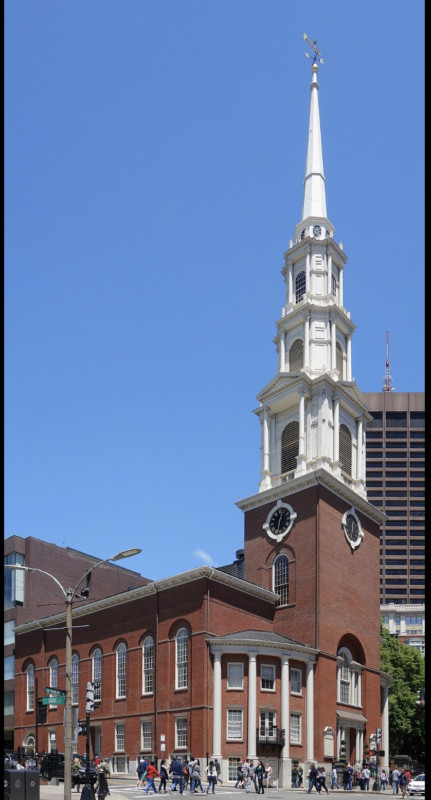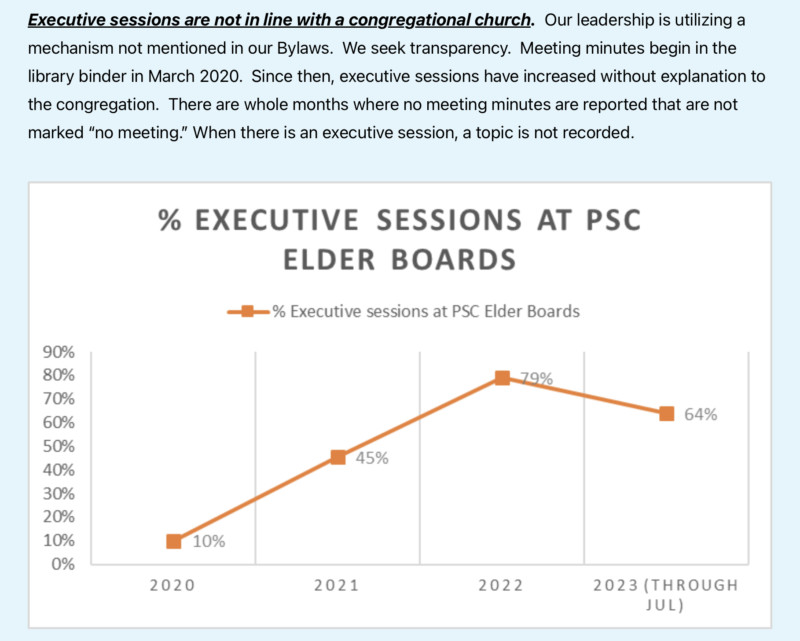Park Street Church, a historical landmark in Boston, finds itself at a critical juncture. Known for its rich history and significant presence in the heart of Boston, near the iconic Park Street, the church is currently grappling with internal turmoil that has sparked concerns among its congregation and observers alike. This article delves into the unfolding situation at Park Street Church Boston, exploring the key issues, allegations, and the growing calls for transparency and resolution.
The current unease stems from concerns surrounding the leadership style of Senior Pastor Mark Booker, allegations of spiritual abuse, and the controversial dismissal of Dr. Michael Balboni, a well-respected pastor within the church. These events have ignited a petition from concerned members and raised broader questions about the church’s governance and direction. This analysis aims to provide a comprehensive overview of the situation, drawing from publicly available information and documents to understand the complexities of the crisis at Park Street Church Boston, a prominent institution located on Park Street in Boston.
Historical Significance and Current Challenges at Park Street Church
Park Street Church is not just another religious institution; it’s a cornerstone of Boston’s historical landscape. Situated prominently on the famed Freedom Trail, near Park Street, the church boasts a legacy of impactful ministry and theological rigor. For many, including the author of the original article who recounts formative experiences there, Park Street Church has been a bedrock of faith and a place of profound spiritual growth. Its reputation extends beyond local boundaries, attracting congregants from across New England drawn to its strong biblical teaching and historical significance.
 Park Street Church in 2014, showcasing its architectural beauty and historical presence in Boston near Park Street.
Park Street Church in 2014, showcasing its architectural beauty and historical presence in Boston near Park Street.
However, this esteemed institution is now facing internal challenges that threaten its stability and reputation. Concerns have surfaced regarding a shift in leadership style, moving away from a traditional congregational consensus model towards a more top-down, guidance-driven approach. This perceived change, coupled with the allegations against Pastor Mark Booker, has led to significant unrest and a public petition calling for a special congregational meeting to review and address these issues.
The Controversy Surrounding Pastor Mark Booker and Leadership Style
A central figure in the current crisis is Senior Pastor Mark Booker. Questions have been raised about his academic qualifications and leadership approach. Historically, Park Street Church has been led by pastors with strong academic backgrounds, often holding PhDs. While Pastor Booker holds a Master of Divinity degree from Oxford, concerns have been voiced regarding whether this qualification meets the standards traditionally expected at Park Street Church and within the US context for a senior pastor role.
Adding to the scrutiny are allegations of a lack of transparency surrounding Pastor Booker’s academic and professional history. Despite calls for him to publicly release a detailed resume to quell concerns, this has not been done, fueling further speculation and distrust. In a letter addressed to the congregation, Pastor Booker defended his credentials but did not provide the requested detailed documentation, a move that has been perceived by some as evasive rather than reassuring.
Furthermore, Pastor Booker’s leadership style is at the heart of the growing discontent. Accusations of spiritual abuse, stemming from a perceived authoritarian approach, have been leveled against him. These allegations are detailed in a letter by Dr. Michael Balboni, who was subsequently dismissed from his pastoral position. The claims include instances of stifling dissenting voices, creating a “toxic fear environment,” and exercising unhealthy control over staff.
Dr. Michael Balboni’s Dismissal and Allegations of Spiritual Abuse
The firing of Dr. Michael Balboni is widely seen as a pivotal moment in the unfolding crisis at Park Street Church Boston. Dr. Balboni, holding a PhD in theology from Boston University and having served as an Instructor at Harvard Medical School, was a respected figure within the church. His dismissal has been interpreted by many as retaliation for raising concerns about Pastor Booker’s leadership and alleged spiritual abuse.
Dr. Balboni’s letter to the Board of Elders meticulously documents his concerns, alleging a pattern of spiritual abuse characterized by emotional and psychological manipulation within a spiritual context. Specific instances cited include Pastor Booker allegedly asking Dr. Balboni to violate pastoral confidentiality, instances of staff members expressing fear of retaliation, and accusations of Pastor Booker making disparaging remarks about other ministers.
The Board of Elders’ response to Dr. Balboni’s allegations has been criticized as inadequate and dismissive. Instead of launching an independent investigation, the Board reportedly conducted an internal review, which many believe lacked impartiality. The Board’s characterization of the issues as mere “differences in leadership styles” has been viewed as a minimization of serious allegations of spiritual abuse.
The concept of spiritual abuse is central to the concerns raised. It is understood as a form of abuse that occurs within a religious context, often involving manipulation, control, and coercion that undermines an individual’s spiritual and emotional well-being. Dr. Balboni’s allegations, if substantiated, point to a potentially toxic environment within Park Street Church, contrary to its mission as a place of spiritual healing and growth.
The Petition and Congregational Uprising
In response to the growing concerns and perceived lack of accountability from church leadership, a petition was initiated by concerned members of Park Street Church Boston. This petition, grounded in the church’s bylaws, calls for a special congregational meeting to review and potentially modify decisions made by the Board of Elders, particularly regarding the dismissal of Dr. Balboni and the handling of allegations against Pastor Booker.
The petition highlights a deep-seated desire within the congregation for transparency, accountability, and a return to a more collaborative and consensus-driven governance model. It underscores the congregational nature of Park Street Church, where traditionally, the congregation holds the ultimate authority in decision-making. The petitioners argue that the current leadership approach is undermining this foundational principle, leading to a sense of disenfranchisement and concern among the members.
The petition also raises questions about the cancellation of the 4 pm service, a decision made by the elders that was later reconsidered following congregational pushback. This incident is cited as an example of the top-down leadership style and the disregard for congregational input, further fueling the calls for a special meeting and a broader review of church governance.
Concerns about a Corporate Church Model and Loss of Consensus
Underlying the current crisis is a broader concern about a shift towards a corporate model of church governance at Park Street Church Boston. This model, often characterized by a hierarchical structure and top-down decision-making, is perceived as being at odds with the traditional congregational ethos of the church. Critics argue that this corporate approach prioritizes efficiency and control over collaborative decision-making and congregational input.
The original article references concerns from the 1990s trend of churches adopting corporate structures, suggesting that this model, while seemingly efficient, can be detrimental to the spiritual health and community aspect of a church. The emphasis shifts from being a body of Christ to operating like a business, potentially neglecting the relational and pastoral needs of the congregation.
The move away from a consensus-based model towards a “guidance-giving” or top-down approach is seen as a significant departure from Park Street Church’s historical practices. Congregational churches, by their nature, emphasize consensus and the collective wisdom of the congregation in decision-making. The perceived shift towards a more hierarchical structure is viewed as a potential “church takeover,” where the power is concentrated in the hands of a few leaders, diminishing the voice and agency of the broader congregation.
 A gathering at Park Street Church, representing the community and congregational aspect that is central to its identity in Boston.
A gathering at Park Street Church, representing the community and congregational aspect that is central to its identity in Boston.
The Imperative for an Independent Investigation and Path to Healing
A recurring theme throughout the unfolding crisis at Park Street Church Boston is the urgent call for an independent, third-party investigation. Many believe that only an external investigation can impartially assess the allegations of spiritual abuse, leadership misconduct, and governance issues. An internal review, as conducted by the Board of Elders, is deemed insufficient due to potential biases and conflicts of interest.
Drawing parallels with past situations, the article highlights the precedent of Park Street Church commissioning an external investigation in a previous instance of alleged spiritual abuse. The inconsistency in not pursuing a similar independent investigation in the current situation raises further questions about the Board of Elders’ handling of the crisis.
The need for an independent investigation is underscored by experts in abuse and organizational ethics, who emphasize that internal investigations conducted by entities with vested interests often lack objectivity and fail to uncover the full truth. An independent investigator, with a fiduciary duty to the truth, is crucial for providing a fair and comprehensive assessment of the situation at Park Street Church Boston.
The path forward for Park Street Church hinges on addressing the deep-seated concerns of its congregation. A commitment to transparency, accountability, and genuine reconciliation is essential. An independent investigation is not merely a procedural step but a necessary action to foster healing, rebuild trust, and ensure that Park Street Church Boston remains a place of spiritual safety and growth for all. The resolution of this crisis will not only determine the future of Park Street Church but also serve as a case study for other religious institutions navigating similar challenges in leadership and governance.
